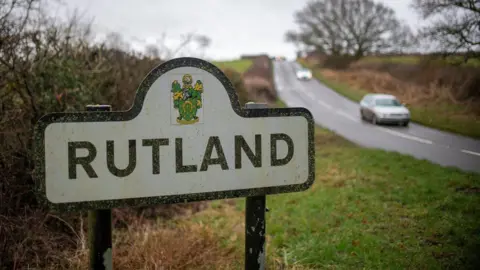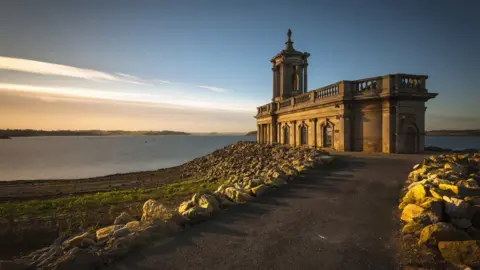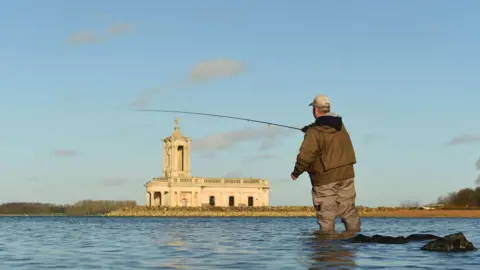Mega-council plans leave Rutland's future uncertain
 PA Media
PA MediaIt may have its own flag, its own proud history, and nowadays even its own McDonald's - but England's smallest historical county may soon no longer have its own independence.
Rural Rutland's future as a county, handed to it in 1997 following a hard-fought campaign in the decades after it was designated a district of Leicestershire in 1974, is in the balance.
A major reorganisation of local government has been proposed which could see smaller district councils merged with county councils to create single bodies, known as unitary authorities, representing populations of about 500,000.
The government has argued this will create simpler, more efficient ways of delivering services - but for Rutland the changes are more existential.
The aim is to do away with "two-tier" councils, handing them greater powers and funding.
At present, Rutland has control of both district and county levels of administration - from schools and roads to wheelie bins and planning.
But with a population of just over 41,000 at the 2021 Census, Rutland is a long way short of the clout it would need to become a so-called "mega-council".
 Getty Images
Getty ImagesRutland and Stamford MP Alicia Kearns said Rutland's independence was "really hard fought for".
She said that an event organised for Rutland residents at Oakham's Victoria Hall on Monday 27 January was so oversubscribed a second date a week later has had to be booked too.
"There are lots of reasons why some people are saying to me they do want to merge with Leicestershire," she said. "In which case the question is - is it one big unitary for the whole of Leicestershire? Is it two unitaries, north-south or east-west?
"These are things people need to start thinking about before the issue overtakes the chance for the public to have a say.
"It's not for me to prejudge what we should be doing, it's for me to say you need to know, and tell me your views."
While previously Rutland has been linked with its neighbour Leicestershire, and these links remain in policing and health organisation, leader of Rutland County Council Gale Waller told the Local Democracy Reporting Service informal discussions had also been held with South Kesteven in Lincolnshire about a potential merger.
She said there had been conversations before and after Christmas but her understanding from the White Paper was that reorganisation must follow health and policing boundaries.
 PA
PAAlongside wanting local authorities to restructure, ministers want every area of England to have a mayor, to whom they would hand powers.
They want the first of those new mayors to be elected in May 2026 on to new "shadow authorities".
These shadow authorities would have a year or more to become operational.
The government says it expects to deliver the new unitary authorities in April 2027 and 2028 - but the details of how these lines could be drawn have yet to be announced.
Follow BBC Leicester on Facebook, on X, or on Instagram. Send your story ideas to [email protected] or via WhatsApp on 0808 100 2210.
